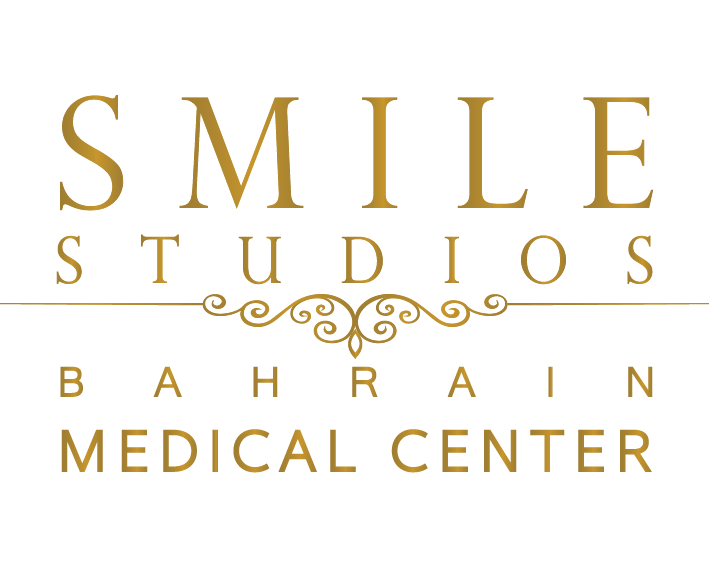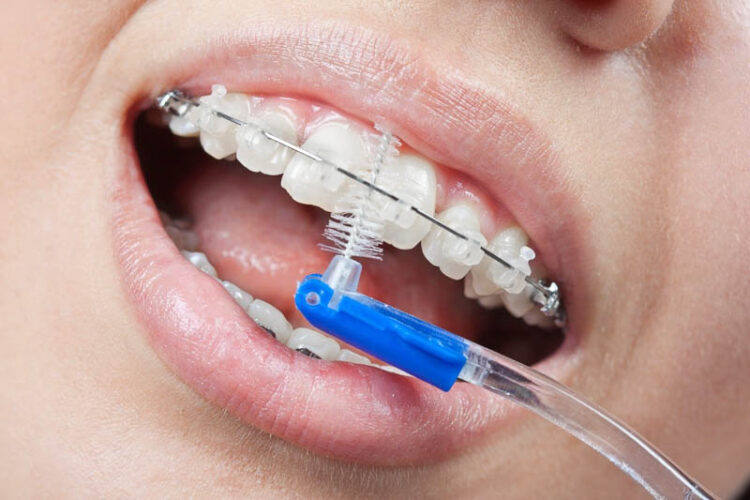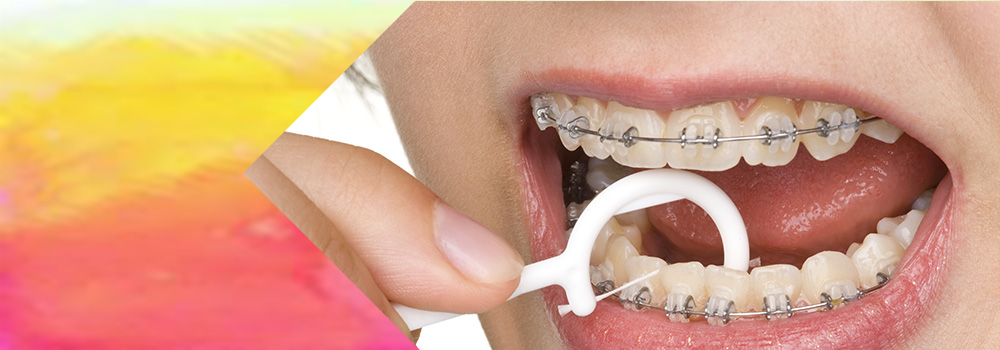Welcome to The Ortho-Patients Team at SMILE STUDIOS, this guide will help you understand the main care you must
have with the appliances (Braces and archwires) during your Ortho-treatment, in order to achieve the best results.
ORAL HYGIENE WITH BRACES
When you have braces, it’s very important to brush and floss thoroughly after every meal or snack in order to keep your teeth and gums healthy throughout your treatment. Please follow the recommendations given by us regarding the right toothbrush, toothpaste, and dental floss, that you should be using during your treatment.
HYGIENE AND BRUSHING TECHNIQUE
We recommend you use a brush with a small head and with medium bristles. It is important to apply enough pressure while brushing to feel the bristles of the brush against the gum tissue. Every time you brush your teeth, please take your time to look at yourself in the mirror, to make sure any food debris is still over your teeth or gums. In addition to your conventional toothbrush, you must compliment your oral hygiene with Ortho dental floss and Interdental toothbrushes, to access the areas between the brackets and under the wires.
IMPORTANT MESSAGE
Regardless of how well we clean and prepare your teeth before we put your braces on, only adequate daily oral hygiene during the whole duration of treatment will keep them clean. We will straighten your teeth but taking care of them and of your appliances is your responsibility ..Brush well and have good oral hygiene.
EATING WITH BRACES
What can you eat? When braces are first placed, or after an orthodontic adjustment, your teeth will be sore when you chew. Stick to soft foods and consider meals such as soup, pasta, pancakes, eggs, etc. After a few days, you’ll be eating a pretty normal diet again. There are foods, however, that can damage your braces. Hard, sticky, chewy, or crunchy foods can bend your archwires or cause brackets to come loose from your teeth. This can cause unwanted tooth movement and lengthen your treatment. Please avoid the following:
- Chewing on ice, sticky-chewy candy, Gummy Bears, caramels, french bread, pizza crust, granola bars, corn chips (Doritos), pita chips, or other hard chip snacks; popcorn that is not fully popped, raw carrots (slice them thin), whole apples, peaches or any fruit (slice them into thin wedges). Also, please do not chew on pens, pencils, fingernails, or other hard objects.
Please use your common sense when deciding which foods you should eat and those to be avoided. If one of your brackets comes completely off, keep it in a safe place and bring it with you to the office. In some cases, we will be able to re-fix the same bracket and in some others, it will be necessary to place a new one. If you are wearing elastics attached to a loose bracket, stop wearing them until we perform the repair. If a bracket comes loose, please contact us to let us know.
ORTHODONTIC EMERGENCIES
True orthodontic emergencies are very rare, but when they do occur we are available to help you. As a general rule, you should call the office when you experience severe pain or when you have a painful appliance problem that you can’t take care of yourself. We’d be happy to schedule an appointment to resolve the problem. You might be surprised to learn that you may be able to temporarily solve many problems yourself until you schedule an appointment with our office.
TOOTH SORENESS
Teeth will be tender to biting pressures at times during orthodontic treatment. This is normal after braces are placed and following adjustments. The tenderness will significantly diminish within 3 or 4 days. Soreness can be relieved by rinsing your mouth with a warm salt-water mouthwash. Dissolve one teaspoonful of salt in 8 ounces of warm water, and rinse your mouth vigorously. Eat soft foods for the first few days. Eating warm soup or drinking hot liquids after an adjustment will also help reduce tooth soreness. If you consider it necessary, take Panadol, Tylenol, Advil, or the analgesic that you would take for a headache to help alleviate any discomfort.
IRRITATED CHEEKS, LIPS, OR TONGUE
Brackets may irritate soft tissues initially until the tissues toughen (like your feet if you start to walk barefoot). We provide wax, which can be placed onto the braces until the adjacent cheek or lip area heals. Pinch off a small piece of wax, roll it between your fingers to warm it and soften it, then place it directly over the sharp wire or bracket. If you have no wax, place a small piece of a cotton ball over the sharp part of your braces.
GUMS BLEED
When Brushing Inadequate tooth brushing causes your gums to swell up and bleed, an infection called gingivitis. Bleeding means you need to brush more effectively and to floss as well. After the gums regain their health, they will no longer be sore or bleed. Besides keeping adequate oral hygiene habits at home (brushing after every meal and flossing at least once a day), be sure to continue with regular cleanings at the dental office at least every 6 months.
We are happy to be a part of your journey to a Perfect Smile! We are here to support and help you through this process, so please don’t hesitate to contact us with any questions or requests during your Ortho-Treatment…
…From Dr. Maria Isabel and all the rest of the Dental Team at SMILE STUDIOS
Specialist Orthodontist






